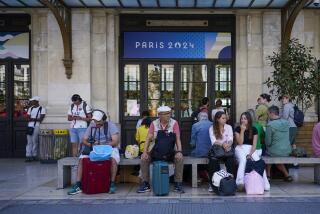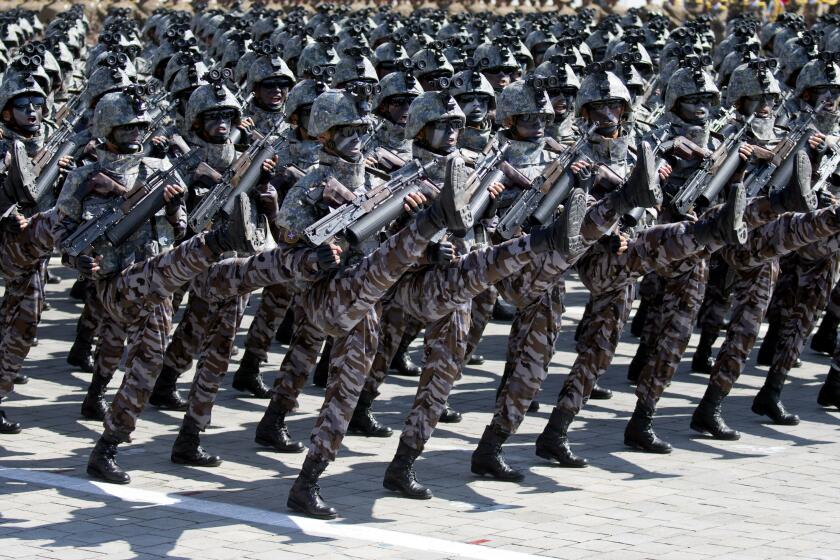Hundreds of Thousands Stranded by Communist-Led Strikes : French Army Ordered Into Paris to Assist Commuters
PARIS — Army transport trucks moved into Paris on Tuesday night to assist hundreds of thousands of commuters stranded by Communist-led transportation strikes on suburban trains and the Metro subway.
The strikes have caused huge traffic jams for the last two days as two of the four main suburban rail systems, used by up to 1 million commuters, were closed. Other trains and subways were severely overcrowded because of reduced service during the strike by the General Confederation of Labor (CGT), which is dominated by the Communist Party.
Officials said at least 350 army trucks and 1,000 soldiers will be positioned early today to help commuters get to work. It marked the first time since 1971 that the army had been called to assist in a transport strike.
A Show of Force
Ordering of the army units into the French capital represents a show of force by the Socialist government of President Francois Mitterrand and Premier Michel Rocard against its one-time political ally, the Communists.
“Today in Paris,” Mitterrand said, “there are millions of people who are not able to get to work and who do not have the transportation they need.”
Mitterrand said it is the responsibility of the government to come to the public’s aid, declaring: “That is what the government has done, and done well, notably by calling the army.”
Union leaders disagreed with his assessment, however.
‘Intolerable Situation’
“This is an intolerable situation,” said Claude Leclavier, federal secretary for the General Confederation of Labor, the largest labor union in France but one that has been steadily losing influence under the Socialist government it once backed.
“It is not the army’s mission to assure transportation of civilians,” Leclavier said. “Its mission is to protect the nation. We will never accept the army being used against the right to strike.”
Union leaders called for marches today to protest against the army intervention.
Transportation workers, who earn an average monthly salary of $1,100, are demanding a $170-a-month increase plus improved safety conditions. The French transport authority has so far offered only an increase of $25 a month and a bonus package ranging from $17 to $100.
Since September, Parisians have suffered a series of debilitating strikes by nurses, postal workers, transportation workers and dozens of other occupations as labor has attempted to break down the austere Socialist government wage policy.
On Tuesday, for example, in addition to the transportation strikes, Parisians faced continued walkouts in some postal and telegraph offices, social security offices, the French international airlines and the Louvre museum.
But as the French newspaper Le Monde noted, the General Confederation of Labor has “so far been unsuccessful in extending the strikes to the whole of the public sector.”
The Socialists, after victories this year in both the presidential and parliamentary elections, have been moving away from the traditional left and toward the political center. The army’s role in the transport crisis was applauded Tuesday by several key centrist politicians, for example.
At the same time, several newspaper columnists have speculated that the price demanded by the Communists for ending the strikes may be a combined candidate list in upcoming municipal elections. If the Communists can force the Socialists into an agreement on the single list, that would assure that the leftist vote would not be divided.
CGT leaders have vehemently denied any political motivation.
More to Read
Sign up for Essential California
The most important California stories and recommendations in your inbox every morning.
You may occasionally receive promotional content from the Los Angeles Times.










